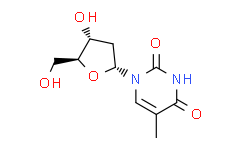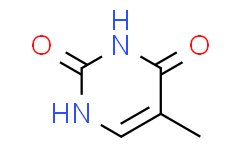Title:Autoradiographic Visualization of Synthesis of Deoxyribonucleic Acid in Tissue Culture with Tritium-labelled Thymidine
标题:用氚标记的胸腺嘧啶在组织培养中进行脱氧核糖核酸合成的自显影可视化
Authors: H. Firket and W. G. Verly
Published in: Nature
Publication Date: January 24, 1958
Volume: 181, Pages: 274-275
DOI: https://doi.org/10.1038/181274a0
Overview
The article by Firket and Verly presents a groundbreaking technique for visualizing DNA synthesis in tissue cultures using tritium-labelled thymidine. This method involves incorporating radioactive thymidine into the DNA of replicating cells, allowing the researchers to track and visualize the DNA synthesis process through autoradiography. The autoradiographic technique captures the radioactive emissions on photographic film, producing an image that indicates the sites of DNA synthesis.
概述
Firket 和 Verly 的文章介绍了一种使用氚标记的胸腺嘧啶核苷在组织培养中可视化 DNA 合成的突破性技术。这种方法涉及将放射性胸腺嘧啶掺入复制细胞的 DNA 中,研究人员通过放射自显影技术跟踪和可视化 DNA 合成过程。放射自显影技术在摄影胶片上捕捉放射性发射,生成显示 DNA 合成部位的图像。
Key Findings
1. Incorporation of Tritium-labelled Thymidine: Tritium-labelled thymidine is a thymidine molecule tagged with tritium, a radioactive isotope of hydrogen. When cells undergo DNA replication, the thymidine gets incorporated into the newly synthesized DNA strands.
2. Visualization Technique: After incorporating the radioactive thymidine, the cells are placed on photographic film. The emitted radiation exposes the film, creating a visual representation of DNA synthesis locations.
3. Applications and Implications: This technique allows for precise localization of DNA synthesis within cells. It provides insights into the replication mechanisms and cellular processes, enhancing the understanding of cell division and growth.
4. Advantages: The autoradiographic method offers high resolution and specificity in detecting DNA synthesis. It enables the study of cellular behavior in various tissue cultures.
主要发现
1. 氚标记的胸腺嘧啶核苷的掺入:氚标记的胸腺嘧啶核苷是带有氚(氢的放射性同位素)标签的胸腺嘧啶分子。当细胞进行 DNA 复制时,胸腺嘧啶被掺入新合成的 DNA 链中。
2. 可视化技术:在掺入放射性胸腺嘧啶后,将细胞放置在摄影胶片上。发射的辐射暴露胶片,创建 DNA 合成位置的可视化表示。
3. 应用和意义:该技术允许精确定位细胞内的 DNA 合成。它提供了对复制机制和细胞过程的见解,增强了对细胞分裂和生长的理解。
4. 优势:放射自显影方法在检测 DNA 合成方面提供了高分辨率和特异性。它使各种组织培养中的细胞行为研究成为可能。
Related Compounds and CAS Numbers
1. 氚标记的胸腺嘧啶核苷 (Tritium-labelled Thymidine): 胸腺嘧啶核苷 (Thymidine): CAS Number 50-89-5
2. 胸腺嘧啶 (Thymine, a component of thymidine): 胸腺嘧啶 (Thymine): CAS Number 65-71-4






 沪公网安备31011402010657号
沪公网安备31011402010657号